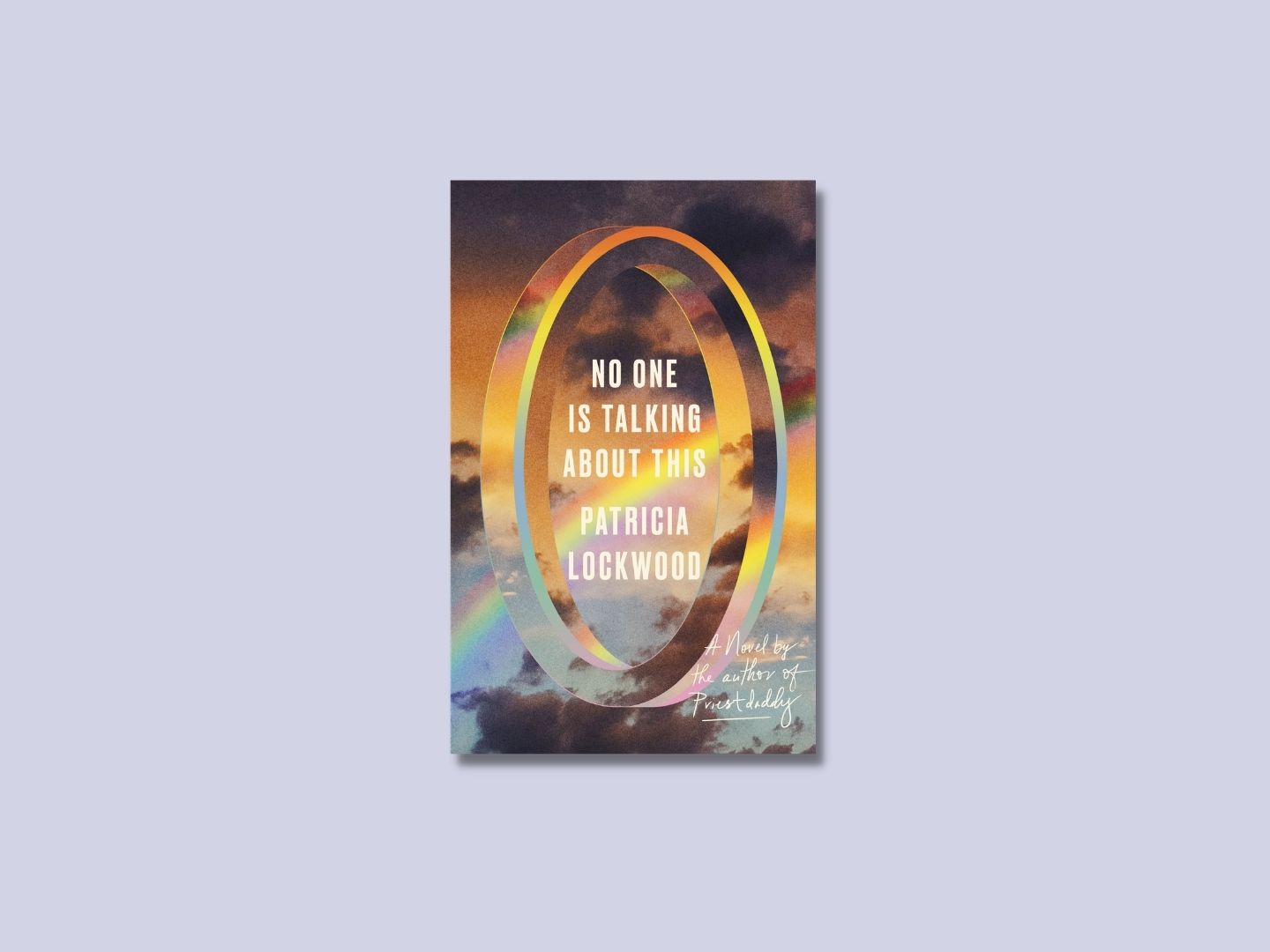
No One Is Talking About This draws our gaze to what we could be talking about (Photo: Riverhead Books)
Readers unfamiliar with Twittersphere may take a while to find their bearings in Patricia Lockwood’s first novel. The first part of No One is Talking About This literally pits them online and pelts them with all manner of posts — from the absurd to the appalling, smart, outrageous, serious, flippant, strange, hilarious and horrifying.
This would not surprise followers of US-born Lockwood, 39, the “poet laureate of Twitter”, who gained fame with her sexts from a decade ago. Substance weights her irreverent style, substantiated by two poetry collections and her memoir, Priestdaddy, named one of the 10 best books of 2017 by The New York Times Book Review and winner of the 2018 Thurber Prize for American Humor.
In this new book, a nameless narrator acquires celebrity status when her post, “Can dogs be twins?”, goes viral and she is sucked into the portal (her word for the internet). Invitations to share her soc-med experiences take her around the world. Soon, speaking from what felt like a cloud bank lifts her from reality and she finds “this did not feel like real life, exactly”.
But with everyone asking, “Do you know… did you read…?”, and everything that happens, however small, silly or surreal, is tweeted and retweeted, it is near impossible to quit the addiction. People connect instantly with just one word —massacre — and there is always something to comment on, condemn or condone: candida overgrowth; school shootings; reality shows; climate change, call-out culture; dictators and pro-lifers; sealing wax manicure; laboured breathing; incest; Bitcoin; meltdown; the future of intelligence; a new funnier way of laughing. Ahahaha!
Lockwood’s extremely online narrator is spot-on in her sporadic posts, pithy observations — bizarre, ironic, subversive — looped to trending topics; a snatch of conversation; a young couple climbing into each other’s eyes, hands and mouth; pop-up alerts; childhood memories and family ties. Just as her physical and virtual worlds blur into each other, a text from her mother plucks her out of distraction and thrusts her into stark reality. Her younger sister is pregnant and something has gone wrong.
patricia-lockwood.jpg

The baby has Proteus syndrome, a genetic disorder associated with Joseph Merrick, the Elephant Man, which affects one in two billion. Her head is growing disproportionately to her body, and the doctors do not think she will live.
The news silences the narrator in the portal. “She knew that as you scrolled you averted your eyes from the ones who could not apply their lipstick within the lines; from the ones who were beginning to edge up into mania; from the ones who were Horny… But above all you averted your eyes from the ones who were in mad grief, whose mouths were open like caves with ancient paintings inside.”
She then starts a linear narrative that is stricken and intimate, focused on what’s happening. As the doctors wait to claim parts of the babe for science — placenta, cord blood, baby’s blood — the narrator settles into a new normal — cheap flights to Ohio to be with her sister; hospital coffee; watching movies and basketball matches to take her mind off things; beeping machines; trying to pray; and waiting to take black-and-white photos of the baby in the operating theatre before she died. But she did not: like a wet spring, she unfurled.
The newborn turns her unseeing eyes towards the family and learns to respond to their voices. The narrator hears a kindness in her own voice. She re-enters the portal but retreats again because everyone is arguing about the n-word. She realises the things she wants the baby to know are small, like going to a grocery store on vacation, a first library card, touching a cymbal for sound and then touching it again for silence.
In her Acknowledgements, Lockwood thanks her sister and brother-in-law for letting her share in the life of their daughter Lena, who died from Proteus. Knowing this makes you flip back to the pages where the narrator plays her niece music, sings her songs and reads, from Wikipedia, how Marlon Brando looks like a wet knife in a T-shirt, the cotton ball in each cheek when he talked. Useless information, but “one of the fine spendthrift privileges of being alive — wasting a cubic inch of mind and memory on the vital statistics of Brando”.
As the little bundle grows, she awakens her aunt’s five senses, the way travel does, and the narrator marvels at how love makes sense of chaos and pain. Dealing with loss and grief later, she finds herself changed. It is poignant, like sad poems on a wet afternoon. She feels a “new and unstoppable stream of care pour out of her palm” as she touches the hand of her hairstylist, who thought he had snipped her when a tear slipped from her eye.
When her tears are spent, she returns to the world and finds she can dance again. Invited to lecture on the portal, she talks about the communal mind and reads something with the voice she used to delight the baby and she remembers why she had entered the portal in the first place — to delight and be delighted.
It would have been delightful if there had been more on the narrator’s sister, 200 times less ironic than her, who declared before the baby’s birth: “I want a year.” Or her shielding brother who went to war because it was his turn; her mother who huddles behind the wheel to cry; her policeman father who carried the baby down to the morgue, his pearl-grey rosary wrapped round her wrist. Or her husband, unnamed like everyone else, who told her: “You were gone so long that Barbra Streisand became hot to me.”
Lockwood has a way with words, using them with the confidence of one certain of their force and power. Social media has the same potential, but trivia churned relentlessly gets tiresome. Raw, tender and real, No One Is Talking About This draws our gaze to what we could be talking about.
This article first appeared on May 10, 2021 in The Edge Malaysia.


